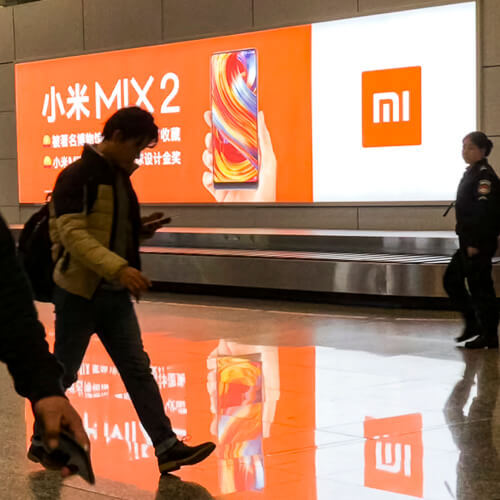It's a heady day for Xiaomi as a DC court overturns Trump's decision to blacklist it, as Q1 earnings show it gobbling up Huawei's market share.

One of Donald Trump's last deeds as president was blacklisting Chinese smartphone maker Xiaomi and other Chinese telecoms companies. But Xiaomi took the issue to court, and yesterday the US district court for the District of Columbia overturned the move.
Xiaomi announced the decision in a filing this morning to the Hong Kong Stock Exchange by its chairman Lei Jun.
Figure 1:  Back on top: Xiaomi celebrated its reinstatement with its Q1 results.
Back on top: Xiaomi celebrated its reinstatement with its Q1 results.
(Source: keso s on Flickr CC2.0)
The announcement came in a day of good news for the Beijing-headquartered company. It released first-quarter results the same day, which showed its revenues grew 55%, to 76.88 billion yuan ($12 billion), as it grabbed market share from a retreating Huawei.
Xiaomi's share of China's smartphone market increased 75% during the quarter over the same quarter in 2020. Its revenue from smartphone sales soared 69.8% over a year before, to 51.5 million yuan ($8 million).
Tale of the ticker
Meanwhile group vice president Lu Weibing expected Xiaomi to surpass Apple as the world's second-largest smartphone brand in the second quarter of this year
In 2023, the company believes it will take over Samsung's mantle as the world's largest brand, something Huawei briefly achieved before Trump sanctions effectively knocked it out of the smartphone market. Xiaomi is currently the world's third-biggest smartphone maker by units sold. And the company has announced it will begin producing electric cars, with the company's founder Lei Jun heading the $10 billion new division.
Accordingly, Xiaomi is reportedly eyeing a 1.5 billion yuan ($235 million) joint venture with Black Sesame Technologies, an automotive chipmaker based in Silicon Valley and Shanghai. The company's own semiconductor stocks remained "healthy," said CFO Alain Lam on a conference call. However, he offered one of the bleaker assessments yet for the wider chip shortage, saying it may carry on until mid-2022.
Xiaomi having its Lei in court
Xiaomi told the federal court the US government hadn't identified the factual basis on which it reached the blacklisting decision, or provided it with information or a chance to refute the move.
Failing to provide Xiaomi with the opportunity to challenge the designation violated its Fifth Amendment rights of due process, said the lawsuit. And by not offering accurate evidence Xiaomi was a "Communist Chinese military company", the Defense and Treasury Departments engaged in arbitrary and capricious decision making, violating the US Administrative Procedure Act, Xiaomi argued.
In the end, the federal court agreed.
While Xiaomi remained designated a "Communist Chinese Military Company" under the 1999 National Defense Authorization Act, US investors would have had to stop buying the company's shares, and ultimately, by January 2022, sell any existing shares.
Several big American asset managers and tech companies – BlackRock, Vanguard, State Street and Qualcomm especially – own large positions in Xiaomi.
Interested in Asia? Check out our dedicated content channel here on
Light Reading.
With the blacklisting reversed, FTSE Russell – a subsidiary of the London Stock Exchange Group which maintains indexes of the stock market – said it will return Xiaomi to its global indexes. The move is significant as it means Xiaomi can access substantial investment from passive tracker funds which rely on FTSE Russell's Global Equity Index Series, its flagship global equity index. Xiaomi's stock will be added back to the index in two tranches, half from June 7, and half on June 21. But the biggest victory of the day remains Xiaomi's rare success in overturning a US policy directly aimed at curbing its growth.
Its rival Huawei, hobbled by US sanctions keeping it from accessing silicon, can only watch on with envy.
Related posts:
— Pádraig Belton, contributing editor special to Light Reading
Read more about:
AsiaAbout the Author(s)
You May Also Like











